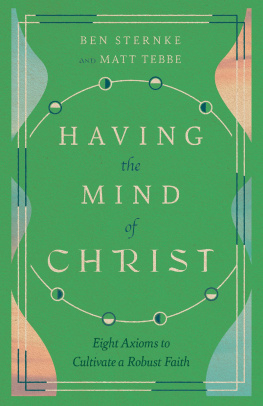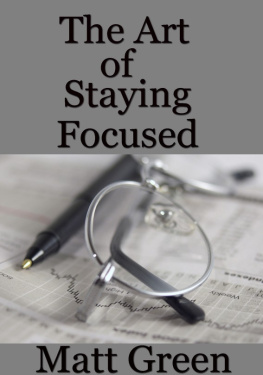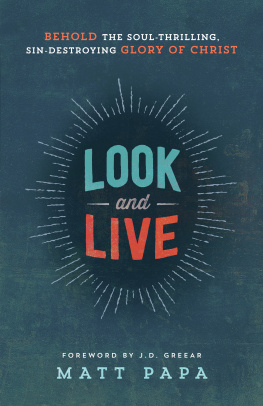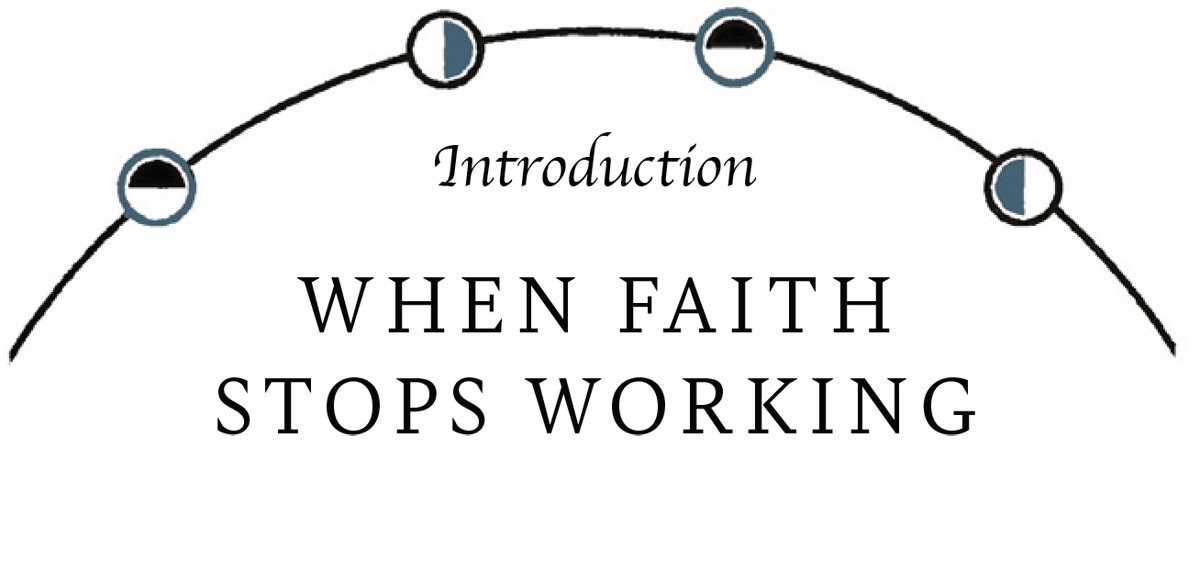I remember the moment I realized I couldnt ignore my doubts and fears about my Christian faith any longer. I was seconds away from walking to the pulpit to preach as a pastor at a large church. As the time approached for me to preach, I felt more and more anxiety about whether I wanted to be a Christian anymore. It feels scandalous even to write that phrase at the beginning of a book about the Christian life! That morning these questions curled around the corners of my awareness and sought to set up shop in my heart: Am I still a Christian? Do I still believe the things Im about to preach today? Do I even want to do all this anymore?
I did my best to muddle through my sermon that Sunday, while part of my mind played defense against questions and doubts. These concerns werent new for me. For a long time, Id been discontent, restless, and increasingly uneasy, as the way I thought about and practiced my Christian faith slowly stopped working for me. My strategy up until that point was to deny that anything was wrong, push away the questions in my mind, and distract myself from my fear and doubt. I thought that by doing the work of Goddistancing myself from my questions and restlessness with Christian activitieseverything would be okay.
But by Gods grace something shifted and broke loose that Sunday. I got through the sermon, shook hands and smiled with congregants, traveled home for lunch afterward, and collapsed on the couch. As I stared at a football game on TV, I admitted to myself that I cant do this anymoresomething has to change because I cannot continue on like this.
When I was twelve years old, I made a promise with myself, a commitment that emerged from watching adults go through life listless and miserable in their jobs. If I ever find myself not enjoying what Im doing, I promise that I will stop doing it! Seems like a reasonable deal for one to make with oneself, but in that moment on my couch I realized how much was at stake: If I face these doubts and stop avoiding this restlessness, will I have any faith left on the other side? If I stop pretending in order to hold everything together, will there be anything of that everything left?
BENS STORY
Like Matt, I had to wrestle with my share of internal doubts and questions about faith while serving as a pastor. But what really disoriented me was seeing the hypocrisy and lack of humility of those who were leading and mentoring me in faith and ministry. There was the youth pastor whose ministry changed my life, who later abandoned his wife and kids to run off with a teenage girl half his age. There was the pastor who preached against gossip but in staff meetings would slander anyone who challenged or disagreed with him. There was the ministry leader who had built an impressive organization that seemed to be helping many churches; behind the scenes he was controlling, arrogant, obsessed with his own image and legacy, and willing to lie at the drop of a hat to preserve his reputation as a godly leader. Im grieved that my participation with and support of these leaders has likely caused harm to people; but when I was working with these leaders, I couldnt see this clearly. Is this just how it is in leadership? I wondered. Am I being naive to think we should be held to a higher standard of integrity? Is this just how the sausage is made, and I need to sear my conscience and get used to it?
In these and other ways, we have been facing this phenomenon some call deconstruction for the better part of twenty years. Deconstruction might not be the perfect metaphor for this process, but it names a very real and painful experience of disorientation and disillusionment that more and more Christians seem to experience. We hear statements like these a lot:
The things that go along with being a Christian in the United Statesthe culture, politics, and entertainmentdidnt used to bother me, but now they do.
When I first became a Christian, I couldnt get enough of church; now, its hard for me to make myself go.
Sayings that used to ring true and bring comfort now seem trite and flimsy.
I used to get so much benefit out of prayer and reading Scripture; now, when I pray and read I have old memories of hurt and betrayal that come to mind. Spiritual disciplines are triggering for me, and I dont know how to be close to God anymore.
However, in facing these sorts of questions, Matt and I havent lost our Christian faith. In fact, we are more committed to Jesus than ever before. When everything else failed us, we came back to the one thing we knew: we wanted to be like Jesus when we grew up. And so, we decided to relearn, again and again, what it meant to be a Christian. This book is the fruit of over twenty years of unlearning and relearning from Jesus how to be a Christian. We are still unlearning and relearning as we go. But the fruit of our twenty years of wrestling is that we now have a way of reconstructing Christian faith as an agile, here and now, moment-by-moment awareness of God in everyday life, centered in the love of Jesus Christ. We want to share with you the shape of this ongoing reconstruction of faith.
OF PARADIGMS AND PRACTICES
The process of reconstruction can take many forms. But for usand for the people weve worked with in discipleship and coachingthere has been a central component of reconstruction that undergirds everything else. It has to do with how we see, rather than what we do. Its about our vision before its about our action. We need a new paradigm, not just new practices.
Often, when we want to change our lives, we start with behaviors: new to-dos, tactics, techniques, or spiritual disciplines that we hope will bring about the transformation we desire. The doctor tells me that my cholesterol levels are too high, so I start a diet and exercise regimen to lose some weight. I realize my bad temper is ruining my closest relationships, so I enroll in an anger management class. I ask someone whose character I admire about their spiritual rhythms, and I start implementing them in my life. Its common sense that if we notice a problem, we ought to do something to fix it, and we often carry this general assumption into our faith as disciples of Jesus. We think its mainly a matter of adding good practices to our lives (prayer, quiet times, Bible study and meditation, silence, solitude, and so on) that will help us build or reconstruct our faith.










 InterVarsity Press
InterVarsity Press